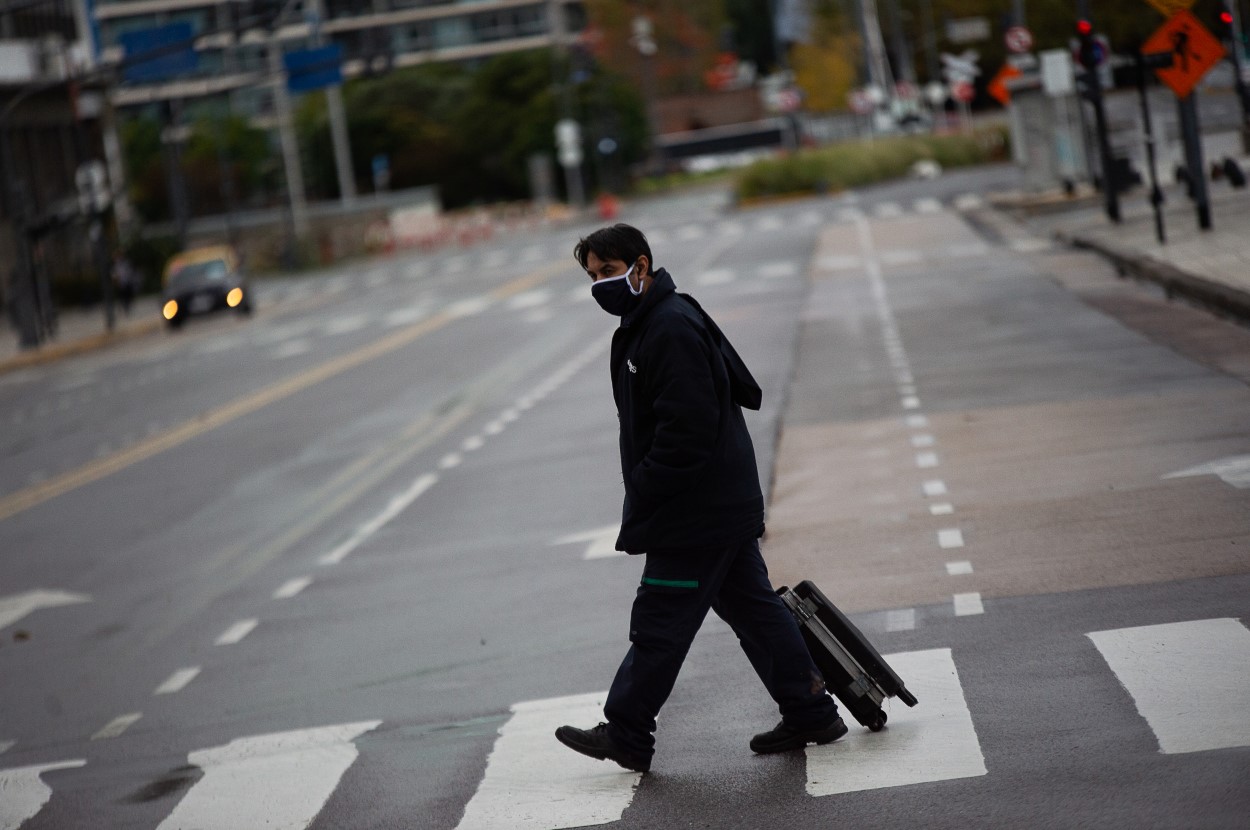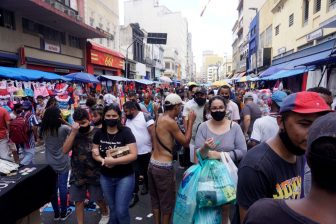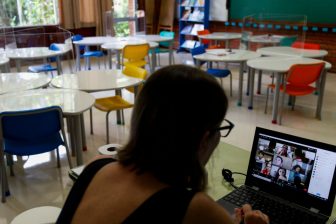A growing global imbalance threatens to further weaken already vulnerable emerging markets: The massive vaccine disparities between advanced and developing economies may exacerbate what the IMF has dubbed “divergent recoveries” – with dire consequences for Latin America.
Despite being home to only 8% of the world’s population, the region has already suffered nearly 30% of all global COVID deaths. The pandemic has also hit GDP and employment harder in the region than in all other developing regions. Poverty and inequality have spiked, potentially rolling back 20 years of hard-fought progress. While Latin American countries are trying to regain what was lost, in the short term, an uneven global recovery will bring grim economic ramifications through three main channels of transmission: health spillovers, global macro/political risks and societal consequences.
Health spillovers
First, the direct and indirect spillovers of an uneven global health recovery could further dampen economic activity. Domestically, we will see increased impact from inadequate vaccine coverage and rollout over the region’s vulnerable labor markets, already characterized by high informality and few jobs that can be done remotely. This, in turn, will weigh on regional growth, which has been overly reliant on employment, rather than productivity improvements.
Health concerns will continue to affect regional exports, especially in contact-intensive service segments. In 2020, international travel arrivals plummeted by 69% year-on-year in the Americas, with devastating impact on tourism-dependent Caribbean nations. If travel bubbles and immunity passports become prevalent in vaccinated parts of the world, a sense of distrust or even discrimination – albeit implicit – might emerge against Latin American countries still struggling with the virus (or using alternative vaccines). Indeed, heightened infection risks have affected not only the movement of services and people, but also goods – through phytosanitary complications such as the ones felt by Brazilian meat exporters — and capital, which leads us to the next channel of transmission:
Global macro/political risks
Second, a robust recovery in the United States, European Union and China, while largely beneficial to the global economy, conceals some important risks for those falling behind. For instance, sharper-than-expected inflation or movements in the price and return of bonds and interest rates, in an otherwise sound U.S. economy, could prompt rate hikes, a strengthening dollar, and a change in investors’ risk appetite. The consequences of a “taper tantrum” – a panicked reaction to a reversal of Federal Reserve policies that had increased liquidity in the markets – are all too familiar for emerging markets, especially in Latin America. In the past, such moves by the U.S. central bank authority have been felt in the form of capital outflows, depreciating local currencies and worsening debt burden and balance sheets. Latin America is currently the world’s most indebted developing region (with an average debt burden of 79% of GDP) and at 57% has the highest external debt service relative to exports of goods and services.
In addition, the pandemic could further a relative reversal of globalization, which had been underway since pre-pandemic years. Persistent tensions between the U.S. and China, widespread export controls on personal protective equipment and vaccines, and potential reshuffling of strategic supply chains are signs of such increased fragmentation. And Latin America’s pandemic and economic management can be highly susceptible to these macro or geopolitical headwinds. This, in turn, could limit the region’s capacity to capture the opportunities generated by de-globalization, such as reshoring and nearshoring gains by increasing supply chains within the region.
Societal consequences
Lastly, a prolonged recovery will aggravate existing social discontent, with economic implications. During and even before the pandemic, socio-political instability has been pronounced in various Latin American countries, as citizens demand improvements in public goods and services provision including education and public transit, and greater efforts against widespread corruption and inequality. While regional governments came under additional pressure to perform under COVID, their capabilities are hamstrung by factors such as dwindling fiscal positions. In a global context, the intensity of economic rescue packages implemented in Latin America – even by regional leaders such as Brazil, Chile, and Peru—fell short when compared to the U.S. and EU.
The likely divergence in the pace and shape of recovery paths globally, and the increased domestic volatilities in the region, could further undermine Latin America’s attractiveness as an investment destination. That is especially concerning for a region that already suffers from the world’s lowest investment-to-GDP ratio, following a 37% decline in foreign direct investment inflows last year – the steepest of all developing regions.
To make matters worse, the economic impacts of COVID-related shocks will vary across population groups. In the world’s most income-unequal region, vulnerable women, rural communities, and informal workers have been affected more severely by the pandemic than other more affluent groups, due to limited access to quality and resilient jobs, internet access, etc. In some countries, vaccine distribution itself has become a new driver of inequality.
What to do?
Amid that gloomy short-term outlook, however, there are also silver linings over the medium and long terms. While the pandemic exposed structural socio-economic weaknesses, it also provided the region with unprecedented urgency as well as incentives to confront them. And in the medium or long term, this could prompt the region to undertake much-needed and long-ignored growth upgrading. A successful post-COVID recovery in Latin America should not be defined simply as a faithful return to its pre-pandemic levels of output — already unimpressive and prone to shocks— but an inflection point towards more resilient, inclusive and productive growth patterns.
Latin American policymakers should proactively explore ways to capitalize on COVID’s positive legacies. The success of agile sub-national authorities and localized, place-based solutions, the necessity and prospect for greater regional integration and collaboration, the potential of accelerated digital transformation, and the ongoing momentum for public-private collaboration in health and other services, all increase the policymaking toolkit available to Latin American governments. Other stakeholders, especially the private sector, can contribute meaningfully to many of these efforts, and lead in others such as the mainstreaming of environmental, social and governance guidelines (ESG) for investors and corporate management and green growth concepts.
The international community also has a key role to play in mitigating the spillovers of an uneven global recovery. Rich countries can help level the playing field for developing nations through, for example, the bilateral donation of excess vaccine doses, joining and financing the COVAX facility, or at the minimum, limiting actions of vaccine nationalism. The recent U.S. announcement of vaccine sharing is an encouraging first step in this direction. While we shouldn’t expect “miracles” from multilateral organizations, their support through financing, know-how, and convening power, will be essential to alleviating COVID’s immediate and longer-term challenges in Latin America and the Caribbean. Without decisive, forward-looking actions from regional and international stakeholders, Latin America risks edging closer to yet another “lost decade.”
—
Canuto served as a vice president and executive director of the World Bank, executive director of the International Monetary Fund, and as a vice president at the Inter-American Development Bank. He is a nonresident senior fellow at Brookings Institution and a senior fellow at the Policy Center for the New South.
Zhang is an associate director at the Atlantic Council’s Adrienne Arsht Latin America Center and a co-author of the Atlantic Council’s latest report LAC 2025: Three Post-COVID Scenarios.








